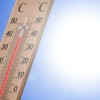Switzerland has always played safe with H5N1 highly pathogenic avian influenza (HPAI) ever since the first European infections appeared in autumn/winter 2005/2006, and this year is proving no exception. Seasonal spread of H5N1 across Europe – north to south and east to west – is caused by migratory wild waterfowl and Switzerland with a large proportion of lake and lakeside area is still taking no chances.
In previous years, there has been a full ban on keeping birds outdoors throughout the entire autumn to spring migratory period but this year, Swiss authorities have settled for a partial ban affecting lakeside areas from 15 October 2007 to 30 April 2008.
These areas, say the Federal Veterinary Office, are considered to be most at risk from the deadly H5N1 that recently re-occurred in neighbouring countries France and Germany. From October 15, a one-kilometre zone around Switzerland's largest lakes, such as Lake Constance and Lake Geneva, will be subject to the restrictions, they told Swissinfo on 28 September.
All poultry owners whether amateur and professional must keep their birds inside and away from wild birds at all times, say the authorities. Measures will coincide with the start of autumn migration of waterfowl from northern Russia southwards. Veterinary Office spokeswoman, Cathy Maret, told Swissinfo, “We know that a lot of wild birds will spend the winter in Switzerland because we have half a million wild birds in winter and only 50,000 in summer.”
In other years, there has been a full ban on keeping domestic fowl outdoors. Ms Maret said that only a partial ban affecting some 800 owners was considered necessary this year, adding that the transmission of the virus from wild birds to poultry was still rare. During the 2005/ 2006 period, there were 32 cases of H5N1 recorded in wild birds in Switzerland but none since then.
That said, Ms Maret told Swissinfo “The risk is there, bird flu is still around, we saw that in Germany, where they also had cases in poultry, so that's why we are taking protection measures.” She was referring to several reported cases of H5N1 in wild birds in the east of Germany near the Czech border during August followed by a massive cull of domestic ducks (365,000) in Bavaria in September, following discovery of H5N1 antibodies in commercial flocks. Eastern France also reported cases of H5N1 wild swans and Ms Maret claims that it was good luck that Switzerland was not infected as well. This is why the Swiss Federal Office still has other preventative measures in place, such as import bans on poultry from countries reporting H5N1. Continual testing and surveillance of wildfowl will continue around the lakes and all dead birds will be tested for the virus.
Switzerland could be hit by H5N1 at any time, claimed Ms Maret.















